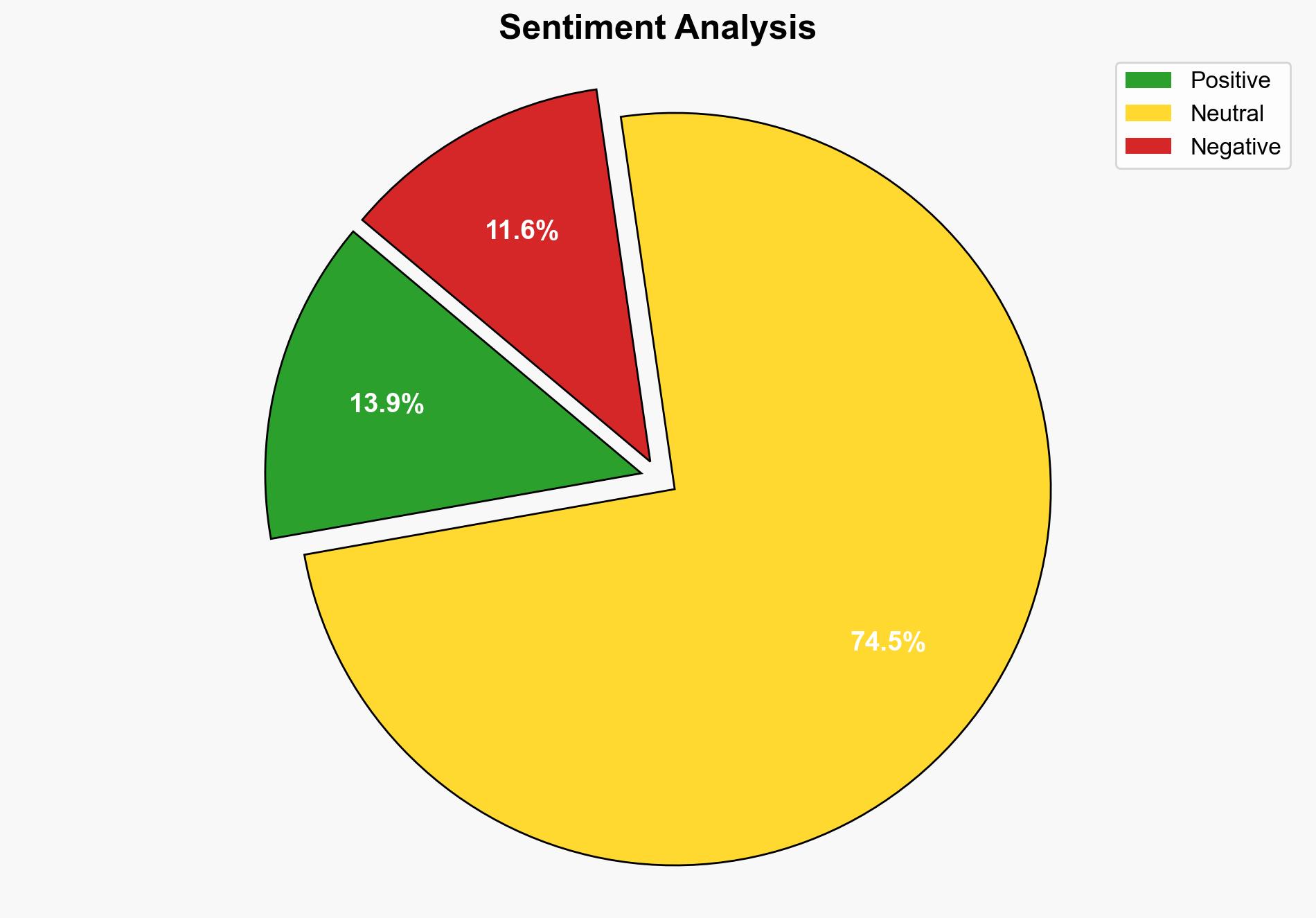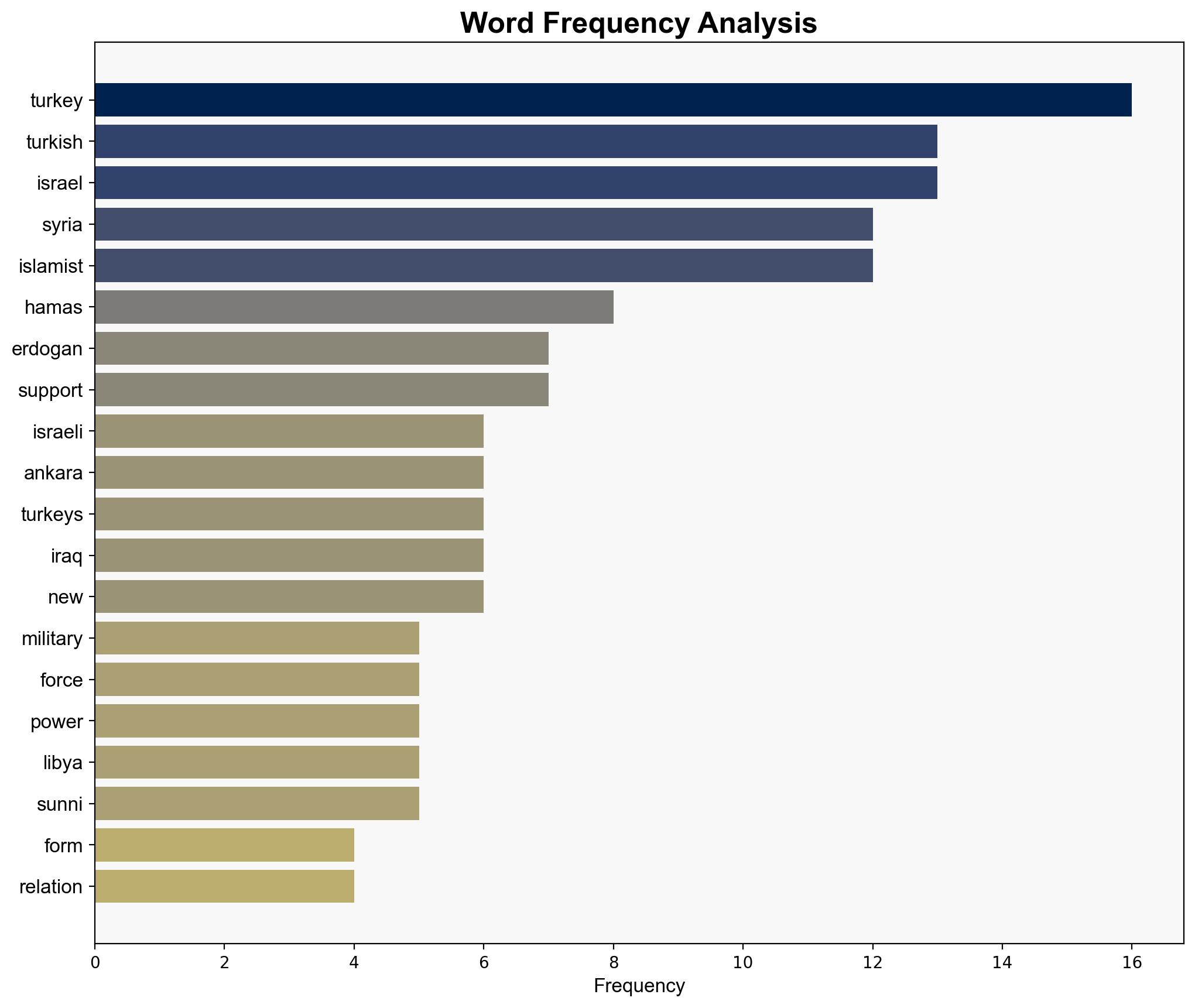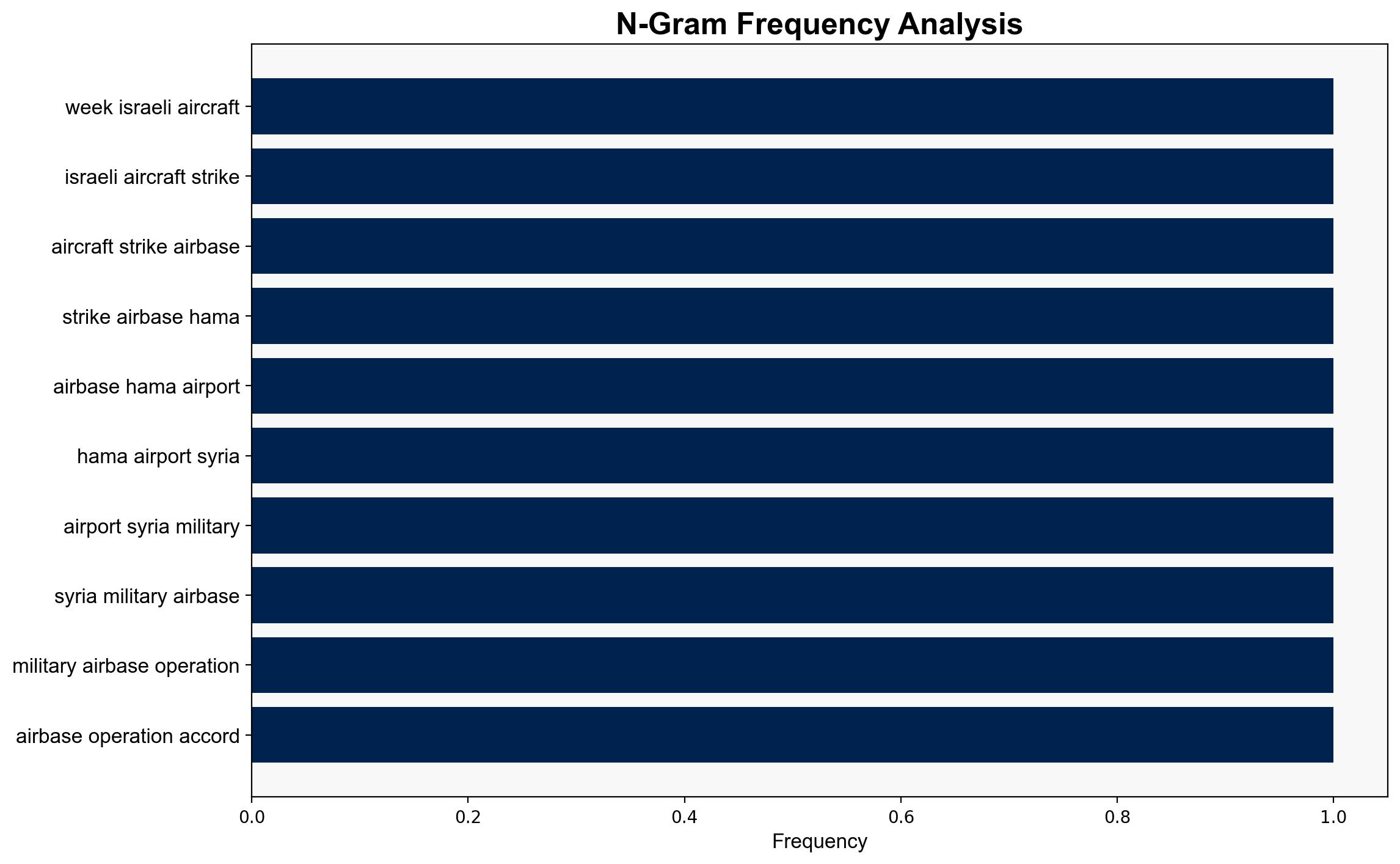Collision course Are Israel and Turkey headed for confrontation – The Jerusalem Post
Published on: 2025-04-11
Intelligence Report: Collision Course – Are Israel and Turkey Headed for Confrontation?
1. BLUF (Bottom Line Up Front)
The geopolitical tensions between Israel and Turkey have escalated, with recent military actions in Syria indicating a potential confrontation. Key findings suggest that Turkey’s strategic ambitions and Israel’s defensive measures are on a collision path, particularly in Syria and the eastern Mediterranean. It is crucial for stakeholders to monitor these developments closely, as they pose significant risks to regional stability and international relations.
2. Detailed Analysis
The following structured analytic techniques have been applied for this analysis:
General Analysis
Recent Israeli airstrikes on Syrian airbases, reportedly to counter Turkish military installations, highlight the intensifying conflict between Israel and Turkey. Turkey’s assertive foreign policy, characterized by military bases across the region and claims over maritime zones, contrasts with Israel’s security concerns and alliances. The arrest of Ekrem Imamoglu and the consolidation of power by Recep Tayyip Erdogan further indicate Turkey’s internal and external strategic shifts. These dynamics are reshaping the geopolitical landscape, with Syria as a focal point of military and political friction.
3. Implications and Strategic Risks
The ongoing tensions pose several strategic risks:
- Increased military confrontations in Syria could destabilize the region further, impacting civilian populations and international humanitarian efforts.
- Turkey’s maritime claims in the eastern Mediterranean threaten regional energy exploration and could lead to naval conflicts involving Greece, Cyprus, and Israel.
- Turkey’s alliances with political Islam movements and its neo-Ottoman ambitions may strain its relations with Western nations, affecting NATO dynamics and regional security frameworks.
4. Recommendations and Outlook
Recommendations:
- Encourage diplomatic engagement between Israel and Turkey to de-escalate tensions and establish communication channels.
- Support regional cooperation frameworks to address maritime disputes and promote shared economic interests.
- Enhance intelligence-sharing mechanisms among allies to monitor and respond to developments in Syria and the eastern Mediterranean.
Outlook:
Best-case scenario: Diplomatic efforts lead to a reduction in hostilities, with both nations agreeing to mutual security arrangements and maritime cooperation.
Worst-case scenario: Escalation of military actions results in broader regional conflict, involving multiple state and non-state actors.
Most likely outcome: Continued low-intensity conflicts and diplomatic standoffs, with periodic escalations in Syria and the eastern Mediterranean.
5. Key Individuals and Entities
Significant individuals mentioned in the report include Recep Tayyip Erdogan and Ekrem Imamoglu. The analysis focuses on their influence on Turkey’s internal and external policies. The report also references strategic entities such as Israeli and Turkish military forces, and regional alliances.



